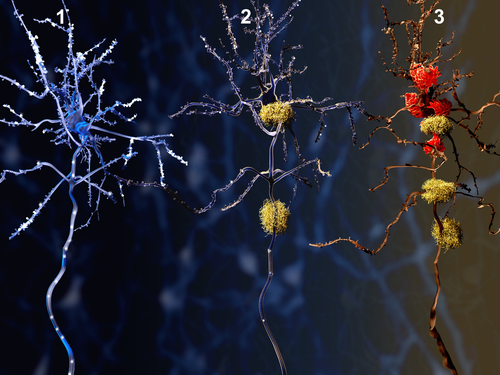I have know about this information for sometime.
Is it best overall to wait for "news", to initially came from the company via the ASX ...or breaking on a chatline.
I don't know, but don't underestimate the power of these chatlines .....that has recently proven to be the case, for sure.
The only problem with this stock - as will be the case Monday, nothing zip, zero reflected in the SP. Anyway here is this information (maybe it will at least mitigate sellers)
So straight to the point.
Existing older PI3K Inhibitors Wortmannin and LY294002 are working very well in the pre clinic studies for the treatment of Alzheimers.
These PI3K drugs lack the quality, development, efficacy, blood penetrate abilities of KZA Paxalisib. (although BBB penetration was not a prerequisite in this preclinical work).
I don't have to explain what this could mean for Paxalisb.
I am not going to plod through and provide vast amounts of cut and paste, to support what I have just said.
Indeed this this link below, may not be the best......... but only yesterday on Ch 7 news there was an update. . Google it.
Its all about tau, PTEN, PI3K as a possible treatment for alzimers.
The Alzheimer research with the PI3K Inhibitor LY294002 was undertaken by the London equivalent of the US NIH. Google it if you are keen.
I can assure you - what I have said is real. But MY WORDS - the proven safe, BBB proven Paxalisib, stands out like a beacon to now possibly now enter clinical trials for Alzheimers.
Targeting Single Enzyme May Produce Multiple Benefits for Alzheimer’s, Mouse Study Suggests
OCTOBER 21, 2019
BY ALICE MELÃO
IN NEWS.
Click here to subscribe to the Alzheimer's News Today Newsletter!
Targeting a single enzyme called PI3K-delta prevented neuroinflammation, reduced the accumulation of toxic amyloid-beta plaques in the brain, and prevented memory deficits in a mouse model of Alzheimer’s disease, a new study shows. This approach, which also increased the animals' life span, may represent a potential new strategy to halt Alzheimer’s progression and ease hallmark symtoms of the disease. The study, “p110δ PI 3-kinase inhibition perturbs APP and TNFα trafficking, reduces plaque burden, dampens neuroinflammation and prevents cognitive decline in an Alzheimer's disease mouse model,” was published in the Journal of Neuroscience. Accumulation of abnormal amyloid-beta aggregates in brain cells and activation of microglia — the resident immune cells in the brain — are two key features of Alzheimer’s. Amyloid-beta protein accumulation is considered one of the main triggers of Alzheimer’s. Its deregulation and progressive deposition promotes the activation of microglia, which can be beneficial in the early stages of Alzheimer's by helping to prevent the spreading of plaques. However, chronic microglia activation and neuroinflammation ultimately leads to nerve cell death and cognitive decline. As researchers investigate the processes underlying Alzheimer’s disease, they say it may be necessary to target both neurological and inflammatory components at the same time. “Most treatments focus on only one aspect of the disease; we want to change this point of view and focus on developing therapies that touch different aspects of the disease, like the combined approaches used to treat cancer,” Ramón Martínez-Mármol, PhD, lead author of the study and researcher at Queensland Brain Institute , in Australia, said in a news release
Subscribe or log in to access all post and page content.
Add to My Watchlist
What is My Watchlist?










